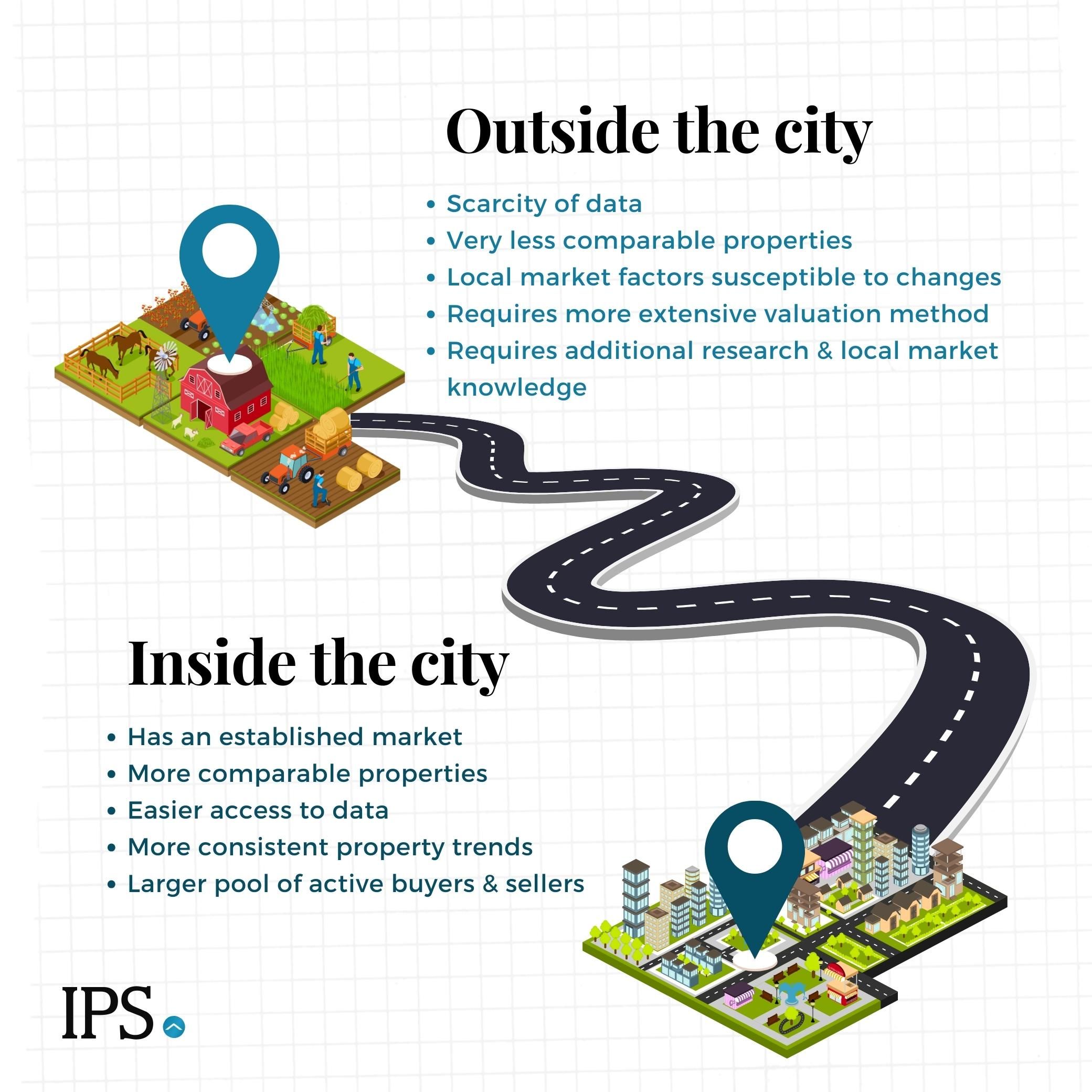It is imperative to evaluate land outside the city correctly. The value and potential of these lands can vary significantly from those within the city limits. Proper evaluation ensures that you make informed decisions and maximize your investment.
However, evaluating land outside the city can be quite challenging if you choose to do it yourself. There are several obstacles that you’ll likely encounter along the way, making it a task better suited for professionals.
Evaluating land in the city
When evaluating land in the city, there are several advantages to consider.
Firstly, the city has an established market, which means there is a well-defined system and infrastructure in place for property transactions. This allows for smoother processes and more reliable evaluations. Additionally, there are more comparable properties available as a basis for evaluation. Having a larger pool of properties to compare ensures a more accurate assessment of the land’s value.
Another advantage is easier access to data. Cities tend to have more readily available information about property transactions, market trends, and other relevant data. Furthermore, property trends in the city are usually more consistent. There is a higher level of activity and stability, which makes it easier to predict and analyze market movements.
Lastly, the city typically has a larger pool of active buyers and sellers. This high demand and supply create a more competitive market, which can potentially drive up the value of the land. These factors combined make evaluating lands in the city a more straightforward task compared to evaluating lands outside the city.
READ ALSO: How Pricing Can Help You Attract More Buyers
Evaluating land outside the city

On the other hand, evaluating land outside the city can pose certain challenges. One of the main difficulties is the scarcity of data available. Compared to the bustling city, data collection for properties in more remote areas can be a difficult and time-consuming task.
Another issue is the smaller pool of comparable properties available for evaluation. With fewer properties to compare to, finding accurate values for the land can be more challenging. Moreover, considering that local market factors can change rapidly, it requires a more extensive valuation method to ensure accurate results.
DEEP DIVE: How Does IPS Conduct Property Valuation in Cambodia
This can slow your approach and require extensive study to stay current with market shifts. To make a proper evaluation, it is also necessary to have additional research and knowledge of the local market. Without this, it may be difficult to recognize nuances in the market and discern what factors might affect land value.
Overall, evaluating land outside the city requires adequate time, effort, and research to reach accurate results.
Final thoughts
When it comes to evaluating land outside the city in Cambodia, it is important to consider seeking professional help. While it may be tempting to try to do it yourself, there are several challenges that can arise.
By seeking professional help from property valuers, you can benefit from the knowledge and experience of experts who are familiar with the intricacies of evaluating land outside the city. They have access to more comprehensive data on Cambodian real estate, have a larger network of resources, and are equipped to handle the challenges that may arise.
Contact us here or via Telegram to connect you with our expert valuers!

